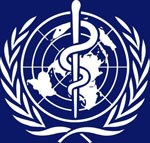A report, a first of its kind, that assessed all deaths related to tobacco showed that second-hand smoke sickens millions and kills more than 600 000 people worldwide each year, including more than 165 000 children under 5.
The report from the World Health Organisation on 192 countries appeared in The Lancet this Thursday and found more than half of the deaths are from heart disease, followed by deaths from cancer, lung infections, asthma and other ailments. It says that more than two thirds of the children's deaths are in Africa and Asia, where they have less access to important public health services, such as vaccines, and less advanced medical care. American Cancer Society's Tom Glynn said, "These statistics are sad data."
A major killer
Tobacco kills nearly 5.7 million people worldwide each year, including 5.1 million people who die from their own smoking. The WHO says smoking is the world's leading cause of preventable death. The report says, "The combination of infectious diseases and tobacco seems to be a deadly combination for children." Dr. Annette Pruss-Ustun of the WHO's Tobacco-Free Initiative in Geneva and her colleagues concluded 40% of children, 33% of male non-smokers and 35% of female non-smokers regularly breathe in second-hand smoke.
Fears of ill effects of passive smoking have led to a ban on smoking in public in many countries. In the USA, 35 states, the District of Columbia, Puerto Rico and Northern Mariana Islands have smoke-free laws, protecting 79% of the population.
A 'glimmer of hope'
Glynn says the "glimmer of hope" is that since smoking bans protect 7% of the world's population, lawmakers could save many lives by passing smoking bans. Heart attack rates drop 10% to 20% in the first year after the bans are enacted. Studies show smoke-free laws encourage smokers to quit and to make their homes smoke-free, Glynn says.
He added, "There is virtually no parent who does not care deeply about protecting their children from harm... They will do the right thing if made aware." In the UK, the British Lung Foundation is petitioning the government to outlaw smoking in cars.
The study was funded by the Swedish National Board of Health and Welfare and Bloomberg Philanthropies.






































